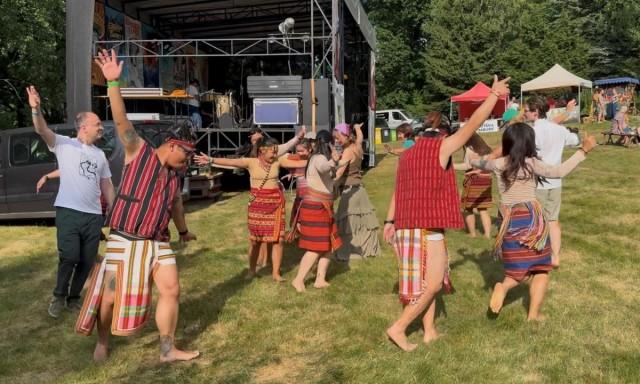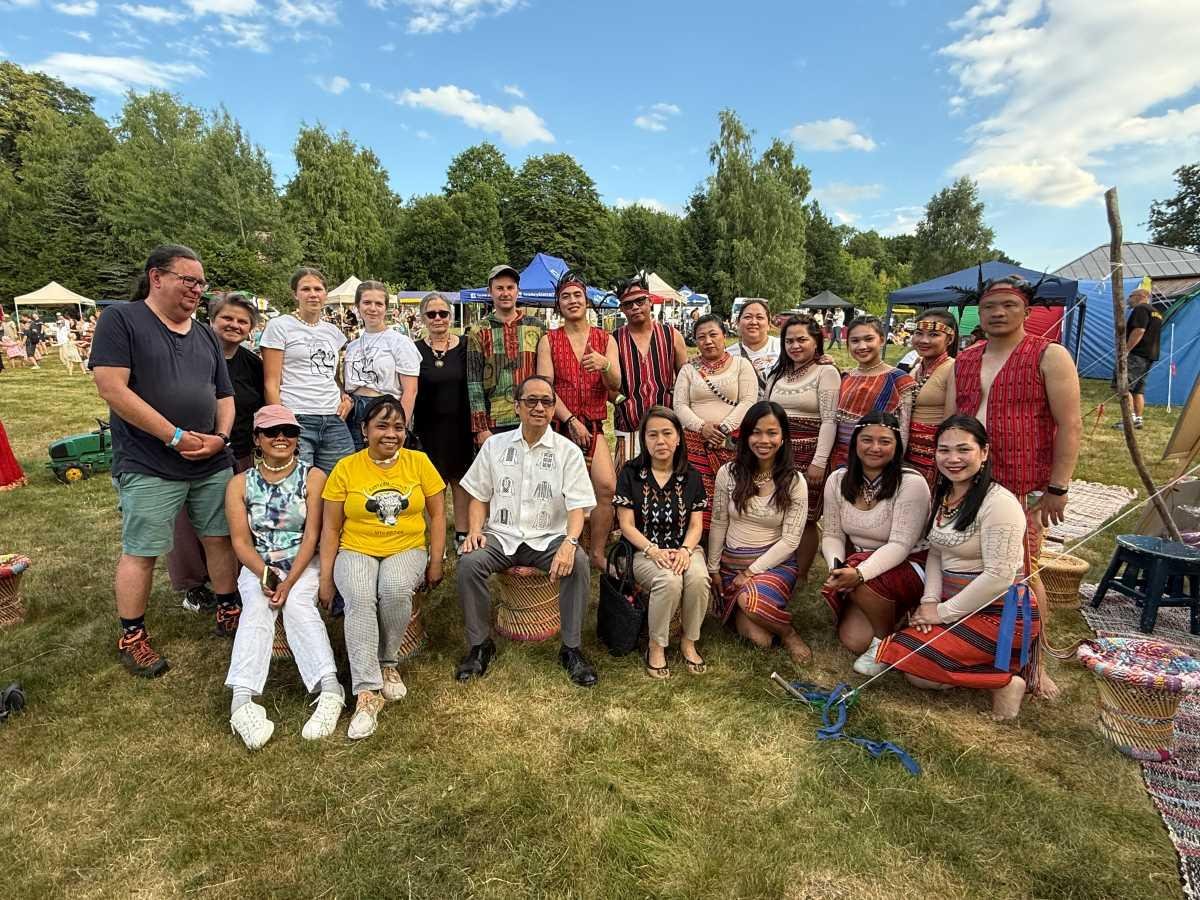Mikulášovice, Czech Republic — A group of Igorots living in the Czech Republic organized a traditional dance workshop during the 10th Eastern Tunes Festival, marking the Philippines’ debut at the annual multicultural event held to counter xenophobia.
The Igorots in the Czech Republic (ICR) troupe taught the bendian, a circle dance from Benguet, to several tourists and festival participants. Migrant worker Amy Siblon, who led the demonstration of the dance’s different arm movements, appreciated the participation of young Czechs in the workshop.
“Nakaka-proud kapag may ibang lahi na gustong [malaman] ang ating kultura (It’s a proud feeling when other ethnic groups want to know more about our culture). We should feel very proud about it, and I am,” Siblon, who works at a multinational logistics firm in Brno, told GMA Integrated News.
Some Czech participants called the bendian workshop a “great experience.” Michaela Chrástová, who volunteers for the Oriental Institute of the Czech Academy of Sciences, said the dance was a “nice exchange of cultures.”
“I’m really glad to know Filipino culture more. There was a lot of laughing when we got the steps wrong, but that made it more fun. That was the best part of it.”

Igorots in Czech Republic lead a dance workshop for Czechs at the Eastern Tunes Festival, teaching some of them the pinesbekan step. The workshop participants also learned the other steps of the bendian dance, as well as their history and traditional significance. ANDY PEÑAFUERTE III
Jirí Sedlák, another local attendee, said the participatory format made the workshop especially memorable.
“I love dancing, and even more so with other people because it’s a whole new experience. Even the emotions and the culture [that were shared through the dance felt new], because we don’t really celebrate culture that much here in the Czech Republic. We also need to see something [like the Igorot dance].”
PH culture in Czech mindset
The women in the Igorot group wore bodysuits that featured traditional ink designs inspired by the body tattoo art of the Kalinga, while the men wore traditional Ifugao attire. Before the workshop, the dance troupe presented a tribal dance.
Dave Cosape, who works at an automotive company in Teplice, noticed that festival participants were drawn in by traditional performers like their group, as well as those who came from Indonesia, Iran, Syria, and Taiwan. These acts performed Arabic melodies, a fusion of ethnic tunes and rock music, as well as traditional dances.
“Nagtipon ‘yung mga local nu’ng nag-perform na ‘yung [cultural groups] kasi gusto nilang makita ‘yung iba’t ibang tradition. Gusto nilang makilala at mapanood [‘yung performers] kasi nakaka-entertain din,” Cosape added.
[Locals gathered when cultural groups started their productions because they wanted to meet the performers and learn about their traditions. The performances were also entertaining.]
The inclusion of the Igorot group was arranged by Dr. Reysa Alenzuela, a Filipina research fellow and head librarian at the Oriental Institute.
“We’re really happy because Filipinos joined the festival for the first time and showcased our culture, traditions, and dances to a wider audience,” Alenzuela said.
Alenzuela added that the festival was a vital platform for raising awareness of the growing Filipino presence in the Czech Republic. “Aside from overseas Filipino workers (OFWs), we have students and professionals here. But often, we’re misidentified or misinterpreted as Vietnamese. [Events like this allow us] to showcase our diverse culture, which is not yet known to a lot of Czech people.”
Held annually near the Czech Republic’s northwestern border with Germany, the Eastern Tunes Festival was created to promote understanding of Asian and Middle Eastern cultures among local European communities. It also featured traditional food stalls alongside souvenir stands selling handmade crafts and festival keepsakes.
“For ten years, we have tried to provide space for the meeting of cultures,” Dr. Phil. Jarmila Ptácková of the Oriental Institute of the Czech Academy of Sciences, the festival organizer, told GMA Integrated News. “We want to give people from this region a rare chance to engage with cultures from the Near and Far East—not just watch performances, but meet, talk, and share.”
Ptácková noted that while the festival often invites international performers, there is equal value in featuring migrant communities already based in Europe.
“It’s important to include the people who’ve settled in the Czech Republic and established their lives in Europe. It’s not always easy for them to integrate with [their new host communities]. We are happy that the Filipino group was here; they showed their dance and brought others into the experience.”
“We hope the [festival participants] will remember something about [the performances] and be encouraged to learn more about the Philippines,” Ptácková added. “Or at least remember the people and friends they met here.” — VDV, GMA Integrated News











